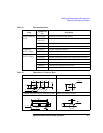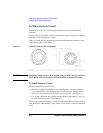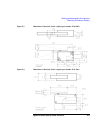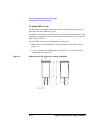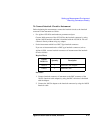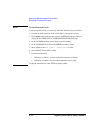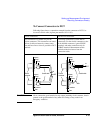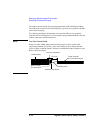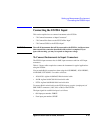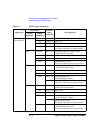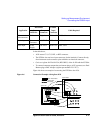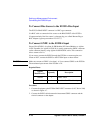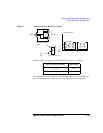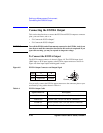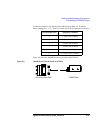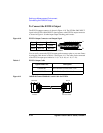
Agilent E5250A User’s Guide, Edition 9 4-15
Setting up Measurement Environment
Connecting the E5250A Input
Connecting the E5250A Input
This section explains how to connect instruments to the E5250A.
• “To Connect Instruments to Input Connectors”
• “To Connect Bias Source to the E5255A Bias Input”
• “To Connect GNDU to the E5250A Input”
WARNING Turn off all instruments that will be connected to the E5250A. And do not turn
them on until the connection described in this section is completed. If you
ignore this warning, you may be exposed to dangerous voltage.
To Connect Instruments to Input Connectors
The E5250A input connector has six SMU input connectors and four AUX input
connectors.
Table 4-3 shows cables required to connect the instrument for typical applications
using the E5250A.
You can make Kelvin connections when using the 4156 HRSMU, 41501 HPSMU,
4142B SMU, E5270 SMU. Use cables as follows:
• 4156/41501: Agilent 16494B-003 Kelvin triaxial cable
• 4142B: Agilent 16494C-001 Kelvin triaxial cable
• E5270: Agilent 16494B-001 Kelvin triaxial cable
To connect Kelvin triaxial cable to the E5250A input, use pairs (couple ports) of
SMU INPUT connectors (1&2, 3&4, or 5&6) of the E5250A.
The input signal for each Kelvin input is as follows:
• Odd input port number: FORCE
• Even input port number: SENSE



